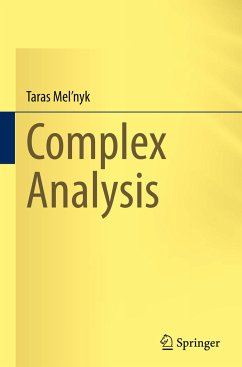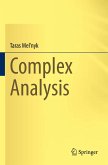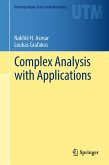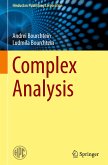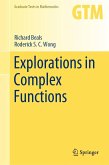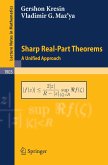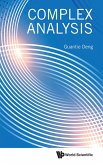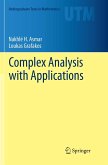Today, the theory of complex-valued functions finds widespread applications in various areas of mathematical research, as well as in electrical and mechanical engineering, aeronautics, and other disciplines. Complex analysis has become a basic course in mathematics, physics, and select engineering departments.
This concise textbook provides a thorough introduction to the function theory of one complex variable. It presents the fundamental concepts with clarity and rigor, offering concise proofs that avoid lengthy and tedious arguments commonly found in mathematics textbooks. It goes beyond traditional texts by exploring less common topics, including the different approaches to constructing analytic functions, the conformal mapping criterion, integration of analytic functions along arbitrary curves, global analytic functions and their Riemann surfaces, the general inverse function theorem, the Lagrange-Bürmann formula, and Puiseux series.
Drawing from several decades of teaching experience, this book is ideally suited for one or two semester courses in complex analysis. It also serves as a valuable companion for courses in topology, approximation theory, asymptotic analysis, and functional analysis. Abundant examples and exercises make it suitable for self-study as well.
This concise textbook provides a thorough introduction to the function theory of one complex variable. It presents the fundamental concepts with clarity and rigor, offering concise proofs that avoid lengthy and tedious arguments commonly found in mathematics textbooks. It goes beyond traditional texts by exploring less common topics, including the different approaches to constructing analytic functions, the conformal mapping criterion, integration of analytic functions along arbitrary curves, global analytic functions and their Riemann surfaces, the general inverse function theorem, the Lagrange-Bürmann formula, and Puiseux series.
Drawing from several decades of teaching experience, this book is ideally suited for one or two semester courses in complex analysis. It also serves as a valuable companion for courses in topology, approximation theory, asymptotic analysis, and functional analysis. Abundant examples and exercises make it suitable for self-study as well.
"The exposition in the textbook is very clear and easy to read, all facts are presented with complete and detailed proofs. The book contains many helpful illustrations. When presenting the material, the author gives many useful exercises of theoretical character. ... The textbook will be useful not only for mathematics students, but also to physicists and engineers who want to gain a deeper understanding of the theory of functions of a complex variable." (Anna Vishnyakova, zbMATH 1546.30001, 2024)

